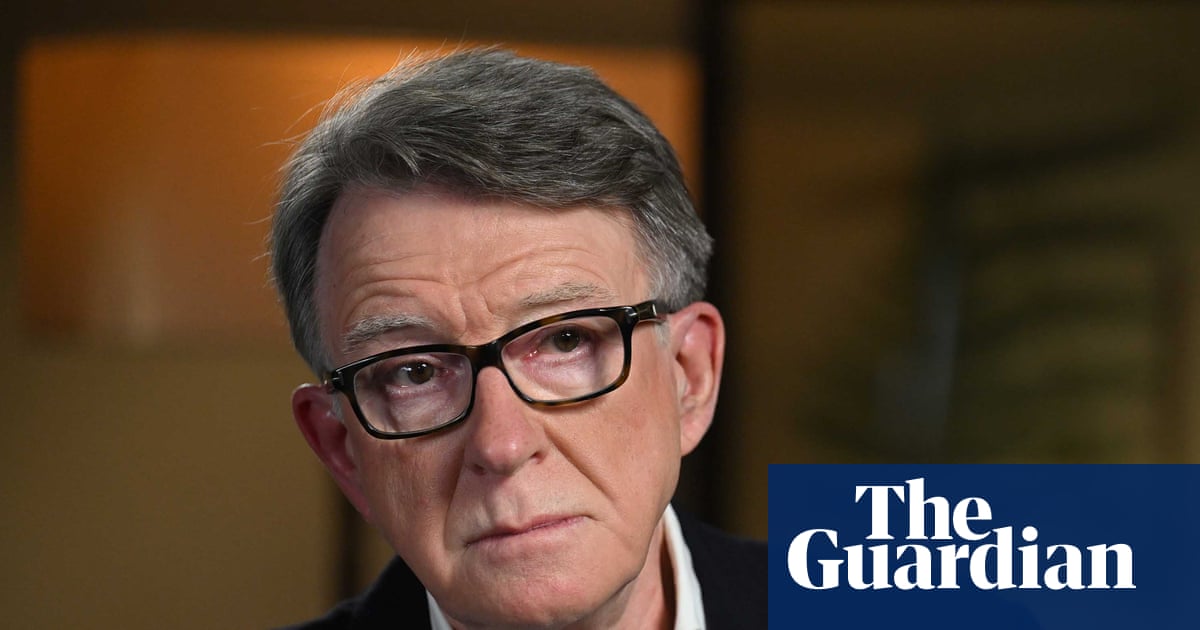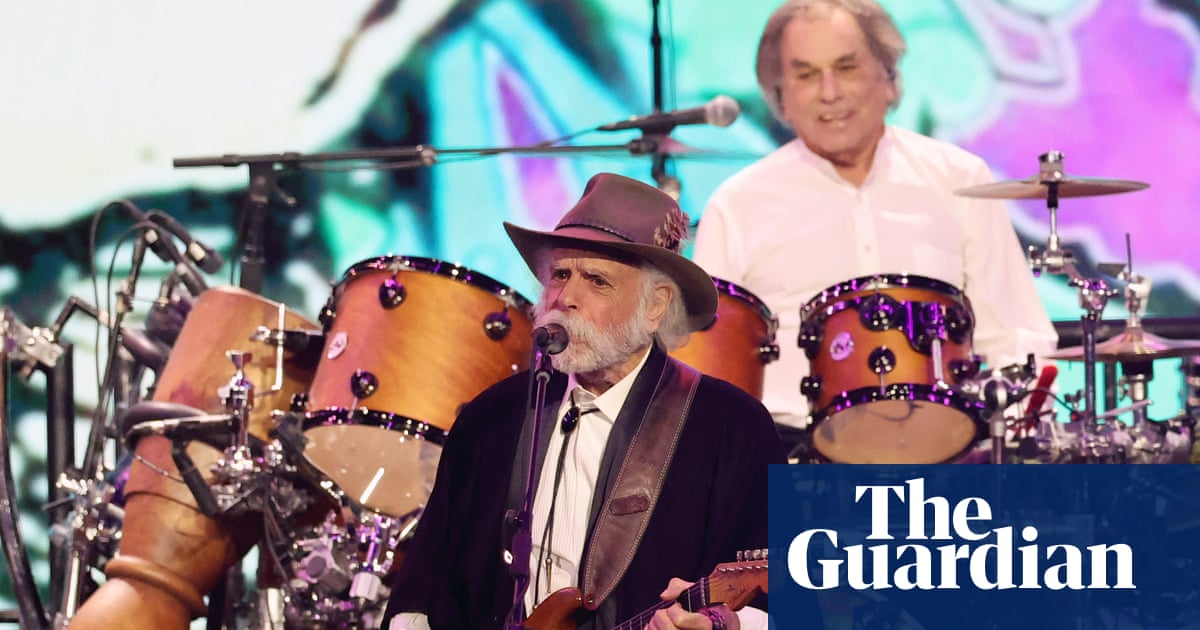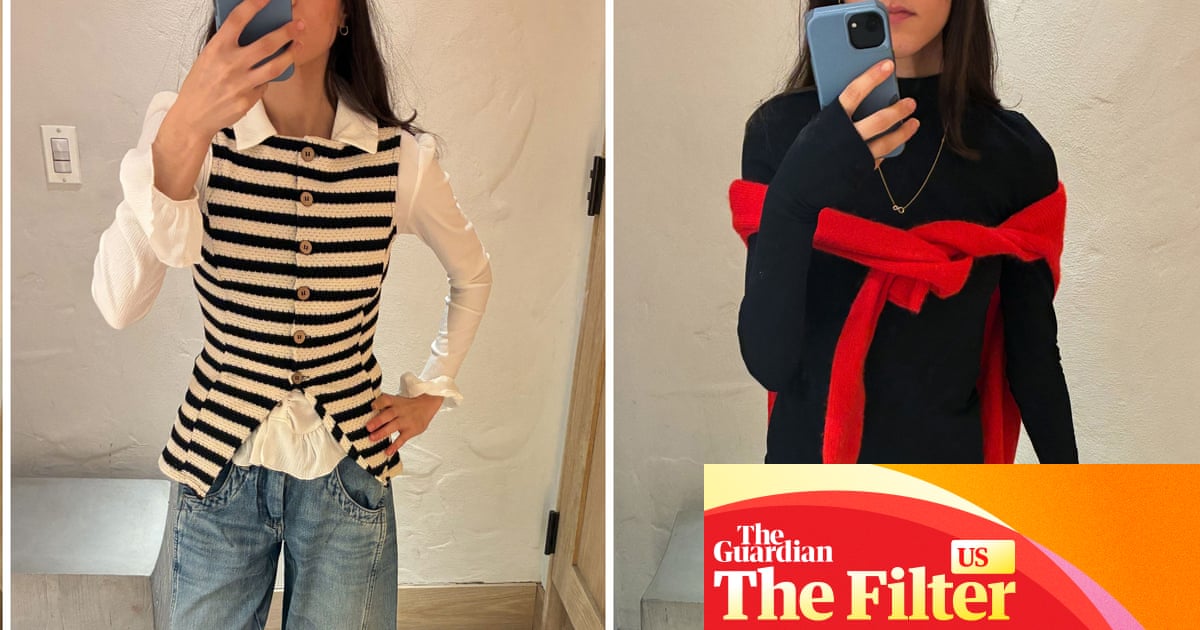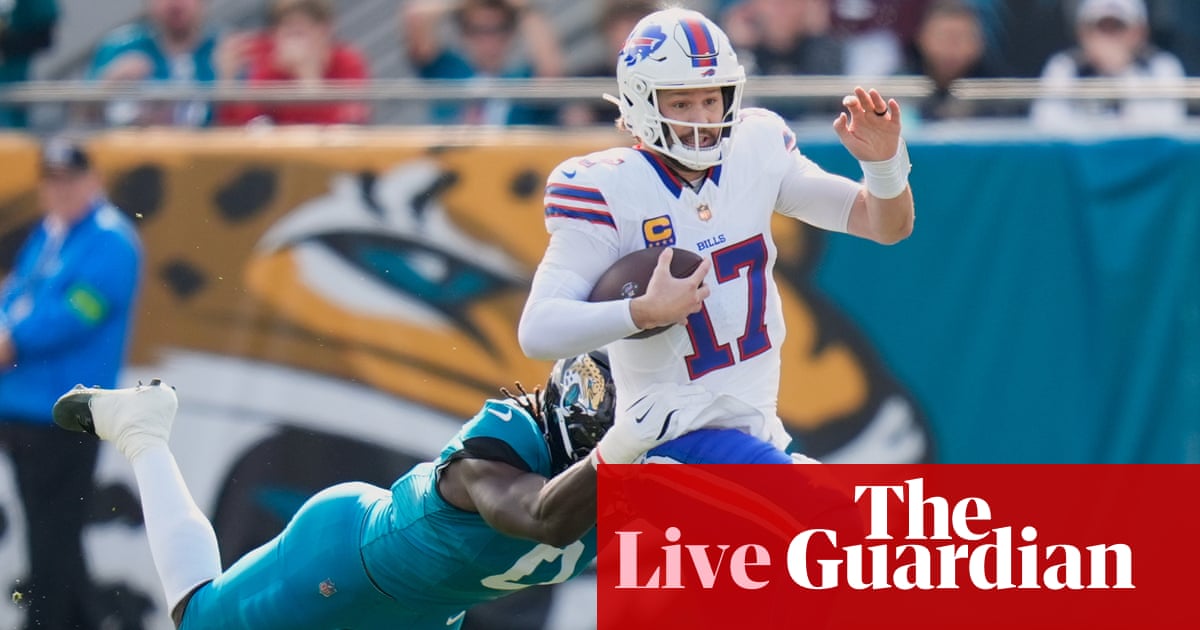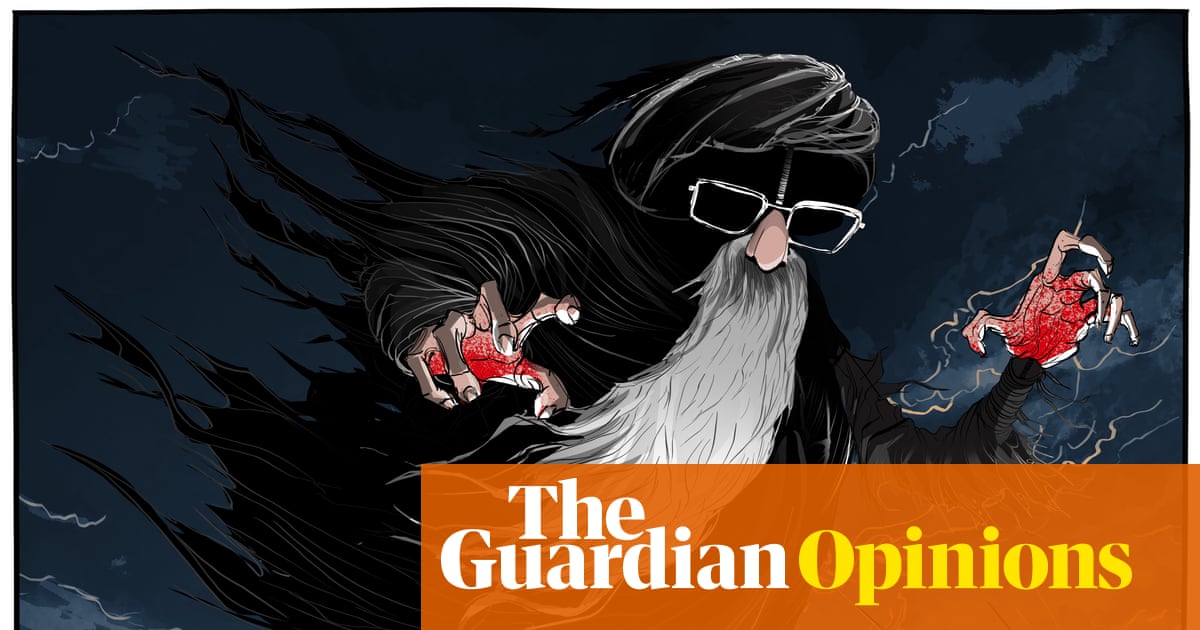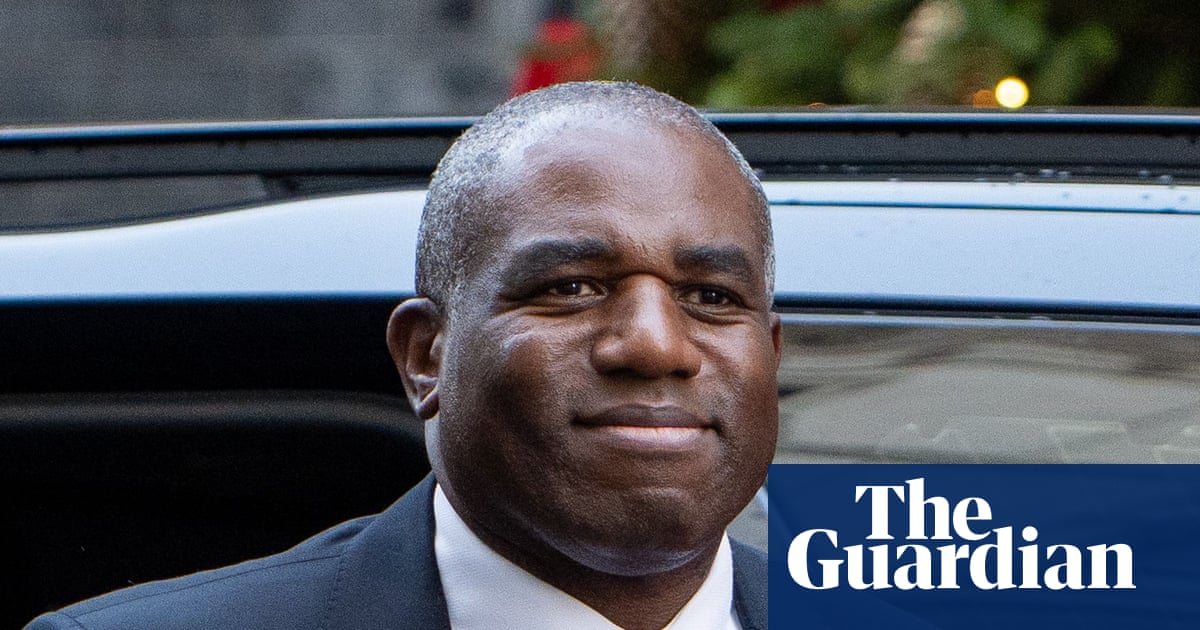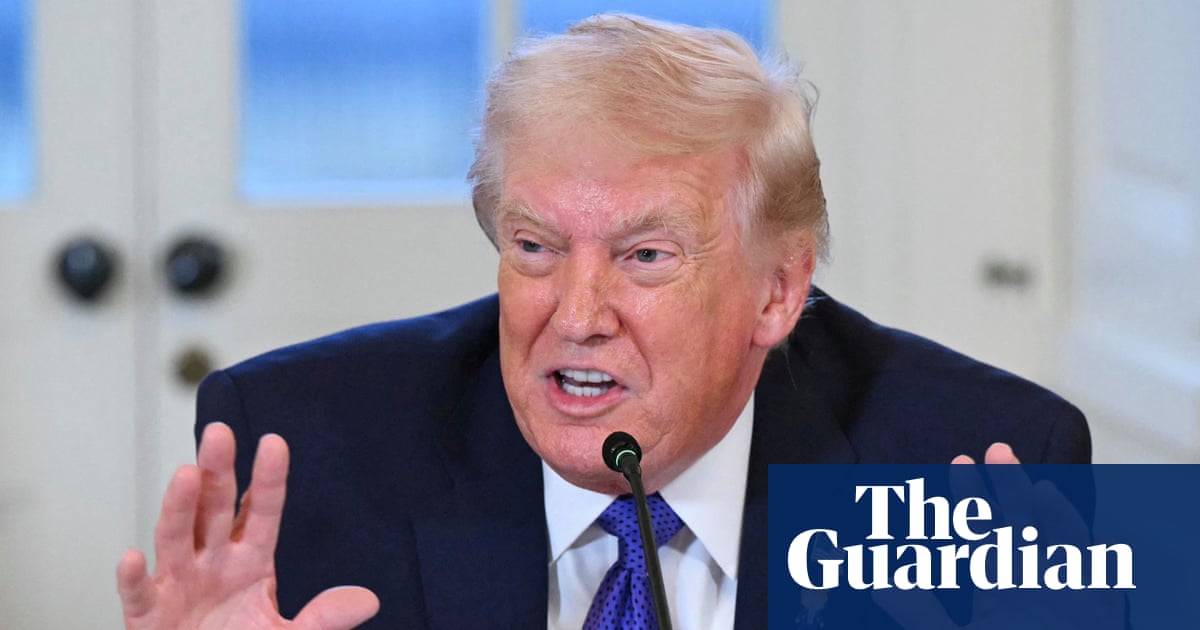Donald Trump has sued the New York Times for, well, reporting on Trump.
Rather than charging the Times with any specific libelous act, Trump’s lawsuit is just another of his angry bloviations.
The lawsuit says he’s moving against “one of the worst and most degenerate newspapers in the History of our Country, becoming a virtual ‘mouthpiece’ for the Radical Left Democrat Party”. And so on.
At least he sued the Wall Street Journal’s parent company for something specific: reporting Trump’s birthday message to Jeffrey Epstein (which Trump continues to deny is his even though it showed up in the Epstein files released by a US House committee).
Last year, Trump sued ABC and its host George Stephanopoulos for having said that Trump was found liable for rape rather than “sexual abuse” in the civil suit brought by E Jean Carroll. The network settled for $16m.
Trump sued CBS for allegedly editing an interview with Kamala Harris on 60 Minutes to make her sound more coherent. CBS also agreed to pay $16m.
Defamation lawsuits are a longstanding part of Trump’s repertoire, which he first learned at the feet of Roy Cohn, one of America’s most notorious legal bullies.
In the 1980s, Trump sued the Pulitzer-winning Chicago Tribune architecture critic Paul Gapp for $500m, for criticizing Trump’s plan to build the world’s tallest building in Manhattan, a 150-story tower that Gapp called “one of the silliest things anyone could inflict on New York or any other city”.
Trump charged that Gapp had “virtually torpedoed” the project and subjected Trump to “public ridicule and contempt”. A judge dismissed the suit as involving protected opinion.
But such lawsuits are far worse when a president sues. He’s no longer just an individual whose reputation can be harmed. He’s the head of the government of the United States. One of the cardinal responsibilities of the media in our democracy is to report on a president – and often criticize him.
The legal standard for defamation of a public figure, established in the 1964 supreme court case New York Times Co v Sullivan, requires that public officials who bring such suits prove that a false statement was made with knowledge of its falsity or with reckless disregard for the truth.
That case arose from a libel suit filed by LB Sullivan, the police commissioner of Montgomery, Alabama, against the New York Times for an advertisement in the paper that, despite being mostly true, contained factual errors concerning the mistreatment of civil rights demonstrators.
The supreme court ruled in favor of the Times, finding that the ad was protected speech under the first amendment and that the higher standard of proof was necessary to protect robust debate on public affairs.
Under this standard, there’s no chance Trump will prevail in his latest lawsuits against the Times or Wall Street Journal. Nor would he have won his lawsuits against ABC and CBS, had they gone to trial.
But Trump hasn’t filed these lawsuits to win in court. He has sought wins in the court of public opinion. These lawsuits are aspects of his performative presidency.
ABC’s and CBS’s settlements are viewed by Trump as vindications of his gripes with the networks.
He’s likewise using his lawsuit against the New York Times to advertise his longstanding grievances with the paper.
His lawsuit against the Wall Street Journal is probably intended to send a message to the Journal’s publisher, Rupert Murdoch, that Trump doesn’t want Murdoch to muck around in the Jeffrey Epstein case.
These lawsuits also put the media on notice that Trump could mess up their businesses.
Not only is it expensive to defend against them, requiring attorneys’ fees, inordinate time from senior executives, and efforts to defend the media’s brand and reputation. When a lawsuit comes from the president of the United States, who also has the power to damage a business by imposing regulations and prosecuting the corporation for any alleged wrongdoings, the potential costs can be even bigger.
Which presumably is why CBS caved rather than litigated. Its parent company, Paramount, wanted to be able to sell it for some $8bn to Skydance, whose CEO is David Ellison (scion of the second-richest person in America, Oracle’s Larry Ellison). But Paramount first needed the approval of Trump’s Federal Communications Commission – which held up the sale until the defamation lawsuit was settled.
Here we come to the central danger of Trump’s wanton use of personal defamation law. The mere possibility of its use – coupled with Trump’s other powers of retribution – have a potential chilling effect on media criticism of Trump.
We don’t know how much criticism has been stifled to date, but it’s suggestive that a CBS News president and the executive producer of 60 Minutes resigned over CBS’s handling of the lawsuit and settlement, presumably because they felt that management was limiting their ability to fairly and freely cover Trump.
Among the capitulations CBS’s owners made to the Trump administration was to hire an “ombudsman” to police the network against so-called bias – and the person they hired was Kenneth R Weinstein, the former president and chief executive of the conservative-leaning Hudson Institute thinktank.
It’s also suggestive that CBS ended Stephen Colbert’s contract, despite the fact that Colbert’s show is the highest-rated late-night comedy show on television. He’s also one of the most trenchant critics of Trump.
If we need any more evidence, on Wednesday ABC pulled off the air another popular late-night critic of Trump – Jimmy Kimmel – because Kimmel in a monologue earlier this week said “[w]e hit some new lows over the weekend with the Maga gang desperately trying to characterize this kid who murdered Charlie Kirk as anything other than one of them and doing everything they can to score political points from it”.
ABC announced the move after Brendan Carr, the chair of the FCC, appeared to threaten ABC, and its parent company Disney, for airing Kimmel’s monologue — ominously saying: “We can do this the easy way or the hard way.”
Jeff Bezos, executive chair of Amazon and owner of the Washington Post, has muzzled the paper’s editorial page, prohibiting it from endorsing Kamala Harris in the 2024 election and imposing a stringent set of criteria on all editorials and opinion columns, which has led to the resignations of its opinion page editor and a slew of its opinion writers.
Trump hasn’t sued the Washington Post for defamation, but Bezos presumably understands Trump’s potential for harming his range of businesses and wants to avoid Trump’s wrath.
Make no mistake. Trump’s efforts to silence media criticism of him and his administration constitute another of his attacks on democracy.
What can be done? Two important steps are warranted.
First, the New York Times v Sullivan standard should be far stricter when a president of the United States seeks to use defamation law against a newspaper or media platform that criticizes him.
Instead of requiring that he prove that a false statement was made with knowledge of its falsity or with reckless disregard for the truth, he should have to prove that the false statement materially impaired his ability to perform his official duties.
Better yet, a president should have no standing to bring defamation suits. He has no need to bring them. Through his office he already possesses sufficient – if not too much – power to suppress criticism.
Second, antitrust authorities should not allow large corporations or ultra-wealthy individuals with many other business interests to buy major newspapers or media platforms. They cannot be trusted to prioritize the public’s right to know over their financial interests in their range of businesses.
The richest person in the world was allowed to buy X, one of the most influential news platforms on earth, and has turned it into a cesspool of rightwing lies and conspiracy theories.
The son of the second-richest person in the world now oversees CBS.
The fourth-richest person now owns the Washington Post.
The Disney corporation, with its wide range of business enterprises, owns ABC.
The problem isn’t concentrated wealth per se. It’s that these business empires are potentially more important to their owners than is the public’s right to know.
If Democrats win back control of Congress next year, they should encode these two initiatives in legislation.
Democracy depends on a fearless press. Trump and the media that have caved in to him are jeopardizing it and thereby undermining our democracy.
-
Robert Reich, a former US secretary of labor, is a professor of public policy emeritus at the University of California, Berkeley. He is a Guardian US columnist and his newsletter is at robertreich.substack.com. His new book, Coming Up Short: A Memoir of My America, is out now

 3 months ago
100
3 months ago
100





